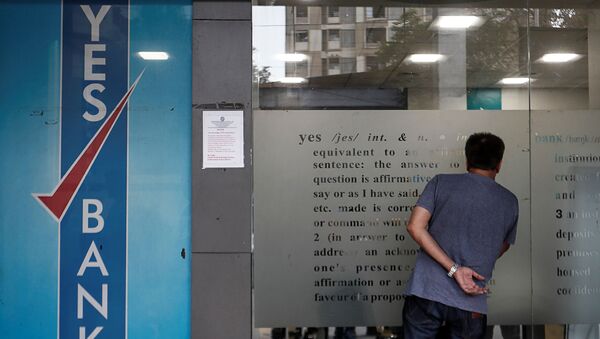After allegations of years of regulatory, governance, and compliance misconduct by the bank’s erstwhile management, led by former chairman Rana Kapoor, both the government and India’s banking regulator are trying to prevent it from collapse and a subsequent contagion effect in the entire financial market.
"Yes Bank" was founded by Rana Kapoor and his partner Ashok Kapoor in 2003. On Thursday, the bank's management was superseded by the country's apex bank, the Reserve Bank of India (RBI).
Irregularities in Compliance by Bank
Announcing a resolution plan for the bank in New Delhi, Finance Minister Nirmala Sitharaman on Friday recounted the factors that led to the downfall of the bank.
“It is not that the Yes Bank’s matter came up only yesterday. Since 2017, RBI had been monitoring Yes Bank closely and continuously, scrutinising Yes Bank’s governance issues, wrong asset classification and risky credit decisions. RBI also took concrete steps”, she said.
Since September 2018, the RBI had been saying that the bank required a leadership change. Subsequently, a new CEO of the bank was appointed.
Minister Sitharaman said that even though a clean-up of the bank had been initiated with the appointment of a new CEO, the bank’s promoter, Rana Kapoor, was also asked to let go of his shares, but he wanted more time. In the meanwhile, Indian investigation agencies culled out irregularities at the level of bank Chairman Rana Kapoor’s office. The RBI made him leave in January 2019.
Sitharaman explained that after Rana Kapoor's exit, attempts were made for a new equity infusion into the bank, which did not see the light of the day until now, due to which the RBI had to supersede the existing management.
Yes Bank - The Road Ahead
Going forward, the country's largest public sector lender, the State Bank of India, will invest equity in Yes Bank for its revival, as announced by the SBI on Thursday.
However, the trouble for the former promoter does not end here.
Sitharaman on Friday said, “I have asked the RBI to go into the assessment of the problem and identify the role played by the persons in creating the problem and not adequately addressing them. I have asked RBI to act with sense of urgency”.
This means that the erstwhile promoter may face regulatory as well as legal consequences for non-compliance with the rules.
Yes Bank’s loan book registered growth from $7.74 billion in March 2014 to $36 billion in March 2019. Almost 22 asset management companies have exposure in the bank.




